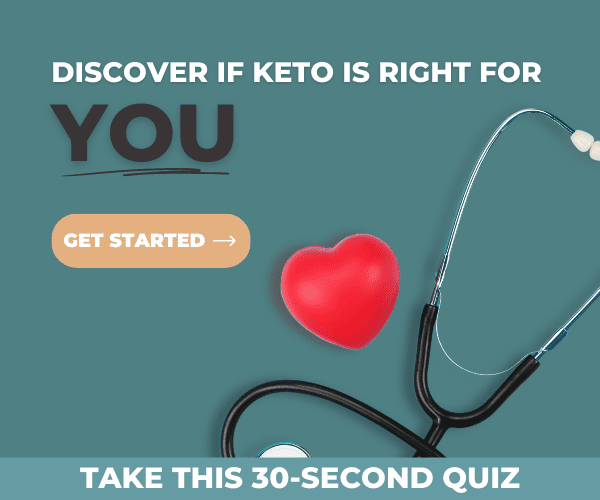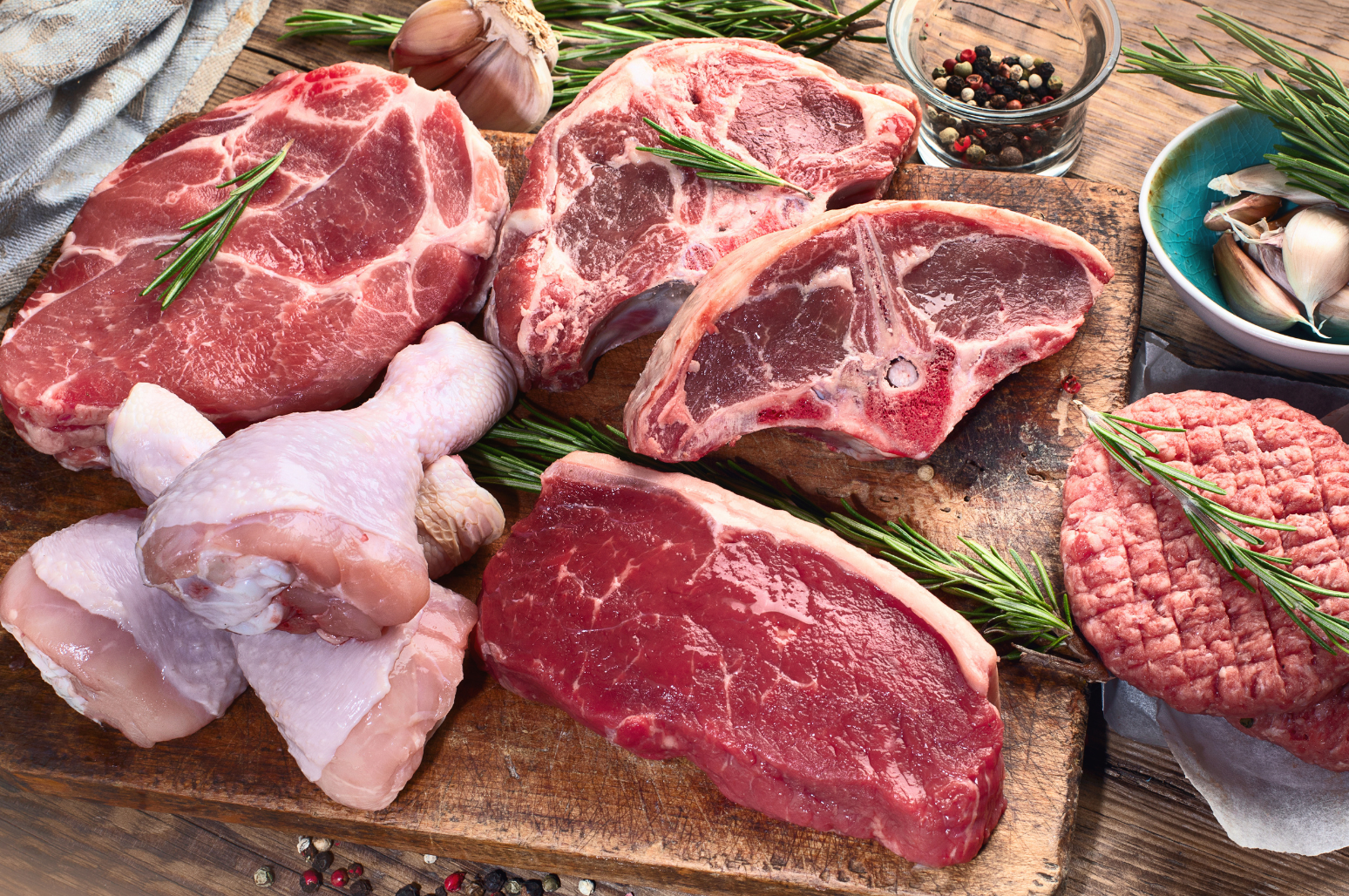Can You Have Whey Protein On Keto? Evidence-Based Benefits and Possible Downsides

When it comes to losing weight, improving satiety, building muscle mass, and increasing your protein on a keto diet, whey protein is a great supplement to take.
Although whey protein isn’t a must for optimal health and performance, it gives you an advantage if you’re looking for specific results while doing low-carb. This is why many athletes, fitness enthusiasts, and regular individuals swear by whey protein.
Thinking of consuming whey protein on keto? Here’s more about this protein supplement, its evidence-based benefits, tips on taking whey, and potential side effects.
What Is Whey Protein?
Whey protein is one of the most studied supplements that’s commonly used alongside an exercise regimen. It comes from the liquid substance in milk created during cheesemaking and is available in three types, namely: [1] [2]
- Whey protein isolate: A pure protein source with at least 90% protein. When processing whey protein isolate, most of the fat and lactose is removed.
- Whey protein concentrate: Concentrate undergoes less processing than isolate and has up to 80% protein. Meanwhile, the remaining 20% is made up of carbs and fat.
- Whey protein hydrolysate: Also called hydrolyzed whey, hydrolysate has been predigested, which makes it easily absorbed by the gut. It’s an option for those with digestive issues and top-level athletes.
Since whey protein isolate has the highest protein content with the lowest lactose and carbs, it’s an appealing choice for people who are lactose intolerant and are trying to limit their carbohydrate intake.
Can You Have Whey Protein on Keto?
Based on what we’ve learned, yes, whey protein is fine on a ketogenic diet. Of the three types mentioned above, whey protein isolate is the most keto-friendly since it has the fewest carbs per serving. Some whey protein isolate powders are even carb-free.
Whey protein is a complete protein source, meaning that it contains all nine essential amino acids: histidine, isoleucine, leucine, lysine, methionine, phenylalanine, threonine, tryptophan, and valine.

Plus, it provides high levels of the branched-chain amino acids (BCAAs) leucine, isoleucine, and valine, known to increase muscle protein synthesis. These are also found in whole foods like beef, chicken, fish, eggs, and milk. [3]
As a supplement, whey protein shouldn’t replace food. Keep in mind that you can get all the nutrients your body needs by following a clean keto diet that includes a wide variety of foods such as meats, poultry, seafood, non-starchy fruits and veggies, full-fat dairy, nuts, and seeds–while also considering your food sensitivities and intolerances.
To choose the best whey protein on keto, go for those that have no added sugars or are sweetened using stevia and those that are sourced from grass-fed cows.
Science-Backed Benefits of Whey Protein
Here are three reasons to consider taking whey protein to supplement your low-carb diet:
1. Maximizes your gains at the gym
In case you’re wondering if it’s possible to build muscle on a keto diet, the answer is yes. Contrary to popular belief, research shows that eating a very low-carbohydrate diet results in fat loss while preserving muscle mass.
One reason is that ketone bodies prevent muscle protein breakdown. Another is that the keto diet is higher in protein than a standard Western diet and dietary protein, as we know, increases skeletal muscle protein. [4]
While you can maintain muscle mass through adequate protein intake, you can grow your muscles by also taking whey protein together with resistance training or lifting weights. In a 2020 study, it was found that males and females who resistance trained for 3 months and took whey protein isolate had an increase in muscle thickness. [5]
2. May increase fat loss
If you want to lose body fat while preserving muscle mass during body recomposition, consider taking whey protein.
Protein is a highly satiating macronutrient and can therefore control your food intake. Protein increases satiety hormones GIP and GLP-1 and reduces ghrelin, which is the hormone that stimulates hunger. [6]
Additionally, protein is more thermogenic (meaning that it boosts your body’s metabolism) compared to carbohydrates and fats. There’s also evidence that diets higher in protein lead to more weight loss and fat loss than diets lower in protein. [7]
3. Helps reduce inflammation
Another potential benefit of whey protein for your health is that it reduces inflammation.
While inflammation is the body’s survival mechanism and helps with repair, prolonged (or chronic) inflammation is linked to diseases like obesity, diabetes, heart disease, and cancer. [8]
A meta-analysis of randomized controlled trials showed that whey protein may reduce circulating C-reactive protein (CRP), a protein made by your liver and sent to your bloodstream during inflammation. [9]
Another 2019 study done on critically ill patients with ischemic stroke found that whey protein supplementation reduced inflammatory markers after 3 weeks, which could improve their health outcomes. [10]
How to Take Whey Protein on Keto

Whey protein can be taken daily or every few days as a post-workout supplement, snack, or meal replacement (if you’re too busy to prepare a healthy keto-friendly meal from scratch).
There’s no definitive rule as to the number of servings to consume per day. Those who consume whey protein usually take 1-2 scoops, equivalent to 25-50 grams of protein, which should be fine. Keep in mind that the more active and older you are, the higher your protein requirements.
Here’s a tip: Try adding one tablespoon (about 14 grams) of medium-chain triglycerides or MCTs to your whey protein shake for a ketone and energy boost.
Are There Downsides to Whey Protein?
Whey protein is generally safe. However, some people who are allergic or intolerant to milk may develop rashes, hives, diarrhea, and other digestive symptoms when consuming whey.
In addition, using whey protein as your only source of protein can put you at risk for micronutrient deficiencies. It may be a great source of amino acids, which have many benefits, but it should not replace a ketogenic diet that includes whole protein-rich foods like eggs, meat, poultry, and seafood.
Incorporating Whey Protein into Your Keto Diet
Can you have whey protein while on keto? Definitely. This supplement isn’t just a quality source of protein, but it’s also very low in carbs and has science-backed benefits like muscle growth, fat loss, and decreased inflammation.
Since whey is made from dairy, you might want to find an alternative protein supplement if you have a dairy allergy. Apart from that, whey protein is generally safe and is a great way to add extra protein to your keto diet.
References
Hoffman, J. R., & Falvo, M. J. (2004). Protein - Which is Best?. Journal of sports science & medicine, 3(3), 118–130.
Koopman, R., Crombach, N., Gijsen, A.P., Walrand, S., Fauquant, J., Kies, A.K., Lemosquet, S., Saris, W.H.M., Boirie, Y., van Loon, L. 2009. Ingestion of a protein hydrolysate is accompanied by an accelerated in vivo digestion and absorption rate when compared with its intact protein. The American Journal of Clinical Nutrition, 90(1), 106–115. DOI: https://doi.org/10.3945/ajcn.2009.27474
Blomstrand, E., Eliasson, J., Karlsson, H. K., & Köhnke, R. (2006). Branched-chain amino acids activate key enzymes in protein synthesis after physical exercise. The Journal of nutrition, 136(1 Suppl), 269S–73S. https://doi.org/10.1093/jn/136.1.269S
Manninen A. H. (2006). Very-low-carbohydrate diets and preservation of muscle mass. Nutrition & metabolism, 3, 9. https://doi.org/10.1186/1743-7075-3-9
Duarte, N. M., Cruz, A. L., Silva, D. C., & Cruz, G. M. (2020). Intake of whey isolate supplement and muscle mass gains in young healthy adults when combined with resistance training: a blinded randomized clinical trial (pilot study). The Journal of sports medicine and physical fitness, 60(1), 75–84. https://doi.org/10.23736/S0022-4707.19.09741-X
Pesta, D. H., & Samuel, V. T. (2014). A high-protein diet for reducing body fat: mechanisms and possible caveats. Nutrition & metabolism, 11(1), 53. https://doi.org/10.1186/1743-7075-11-53
Halton, T. L., & Hu, F. B. (2004). The effects of high protein diets on thermogenesis, satiety and weight loss: a critical review. Journal of the American College of Nutrition, 23(5), 373–385. https://doi.org/10.1080/07315724.2004.10719381
Pahwa R, Goyal A, Jialal I. Chronic Inflammation. [Updated 2021 Sep 28]. In: StatPearls [Internet]. Treasure Island (FL): StatPearls Publishing; 2022 Jan-. Available from: https://www.ncbi.nlm.nih.gov/books/NBK493173/
Zhou, L. M., Xu, J. Y., Rao, C. P., Han, S., Wan, Z., & Qin, L. Q. (2015). Effect of whey supplementation on circulating C-reactive protein: a meta-analysis of randomized controlled trials. Nutrients, 7(2), 1131–1143. https://doi.org/10.3390/nu7021131
Hashemilar, M., Khalili, M., Rezaeimanesh, N., Sadeghi Hokmabadi, E., Rasulzade, S., Shamshirgaran, S. M., Taheraghdam, A., Farhoudi, M., Shaafi, S., Shakouri, S. K., & Savadi Osgouei, D. (2020). Effect of Whey Protein Supplementation on Inflammatory and Antioxidant Markers, and Clinical Prognosis in Acute Ischemic Stroke (TNS Trial): A Randomized, Double Blind, Controlled, Clinical Trial. Advanced pharmaceutical bulletin, 10(1), 135–140. https://doi.org/10.15171/apb.2020.018










